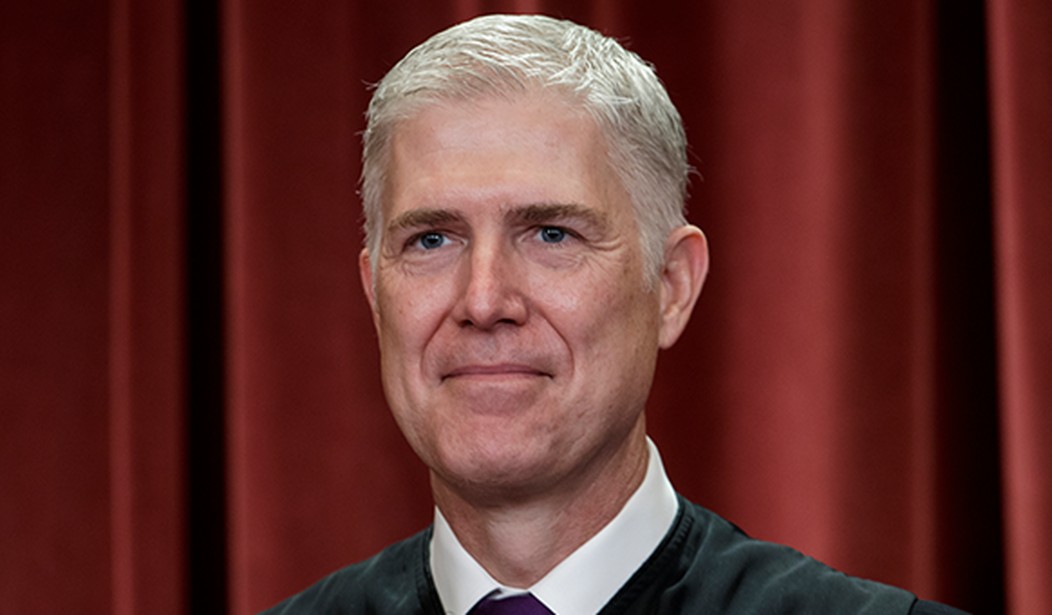Supreme Court Justice Neil Gorsuch broke with conservatives and sided with the liberal wing of the Court on Monday.
The case, Herrera v. Wyoming, called into question a federal treaty from 1868 that allowed members of the Crow Tribe of Indians to hunt on "unoccupied lands of the United States" when Wyoming was admitted to the Union. Clayvin Herrera is a tribal member who hunted in the Bighorn National Forest and was charged for hunting during the off season. The Supreme Court had to decide if the treaty was still in effect or were nullified when Wyoming became a state in 1890.
The lower courts ruled the treaty was nullified when Wyoming officially became a state. The ruling was appealed all the way up to the Supreme Court, at which time the Court decided in a 5-4 decision that the treaty was still in effect and Herrera was wrongly convicted. Justice Sonia Sotomayor wrote the majority opinion, with Justices Ruth Bader Ginsburg, Elena Kagan, Stephen Breyer and Gorsuch joining her.
From Fox News:
The court’s 5-4 ruling, which vacated the decision from the state appellate court, is based on the 1999 decision in Minnesota v. Mille Lacs Band of Chippewa Indians. In that case, the Supreme Court said that a territory gaining statehood is not enough “to extinguish Indian treaty rights to hunt, fish, and gather on land within state boundaries.” The court went further in that case, stating that Congress “must clearly express” an intention to end a treaty with a Native American tribe in order for the treaty’s rights to expire.
By siding with the traditionally liberal justices, Gorsuch gave them a 5-4 majority in the case.
...
Sotomayor, in the latest opinion, also addressed the argument that the land on which Hererra was hunting became “occupied” under the treaty when it became a national forest in 1897. The court’s decision said that while it is possible that certain areas of the forest could be considered occupied, the forest as a whole is not occupied by default simply because it is a national forest.
...
Gorsuch’s conservative colleagues, led by Justice Samuel Alito, argued in a dissenting opinion that the majority has it all wrong. Alito, like the lower court’s decision, relied on an 1896 case involving a similarly worded treaty between Wyoming and the Shoshonee and Bannack tribes, which also was from 1868. That case, Ward v. Race Horse, said that when Wyoming became a state, it ended the treaty. This ruling was based on the idea that states have the authority “to regulate the killing of game within their borders.”
Additionally, the conservative dissent said that a 1995 10th Circuit opinion in Crow Tribe of Indians v. Repsis dealt with the exact issue in Hererra’s case, relying on the precedent in Race Horse to say that the Crow Tribe’s hunting rights under their treaty expired when Wyoming became a state. Because the issue was already decided in that case, the dissent said, it was improper for it to be heard again here.
The majority opinion addressed the Race Horse and Repsis cases, stating that the more recent 1999 Mille Lacs case renders them obsolete. Sotomayor also wrote that it did not matter that the same treaty had been addressed in the past, because the Mille Lacs case represented a "change in [the] applicable legal context." The conservatives disagreed.

























Join the conversation as a VIP Member